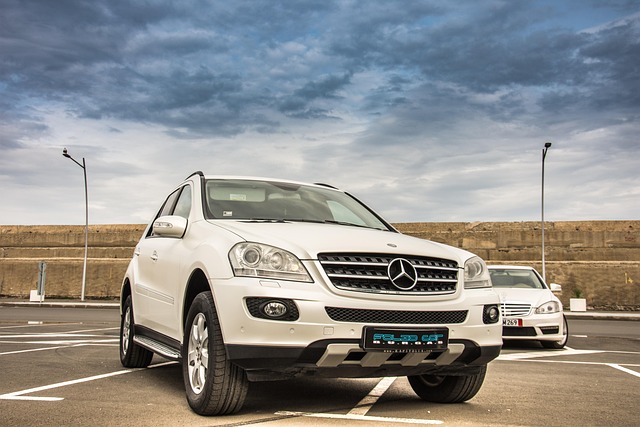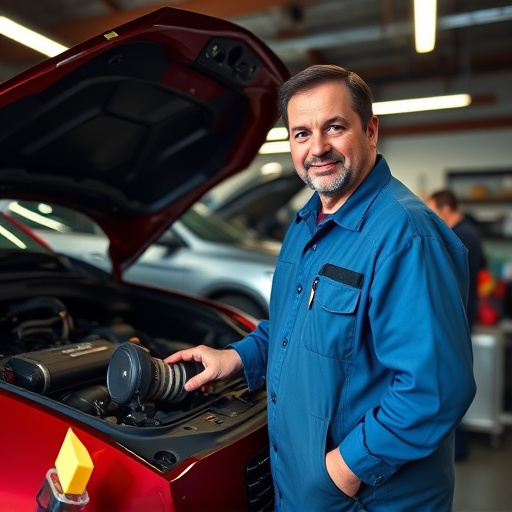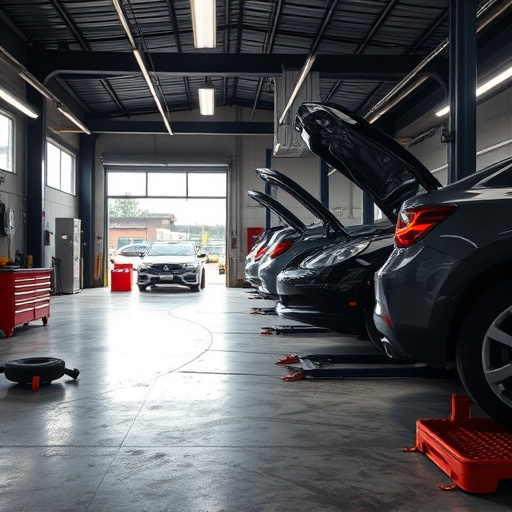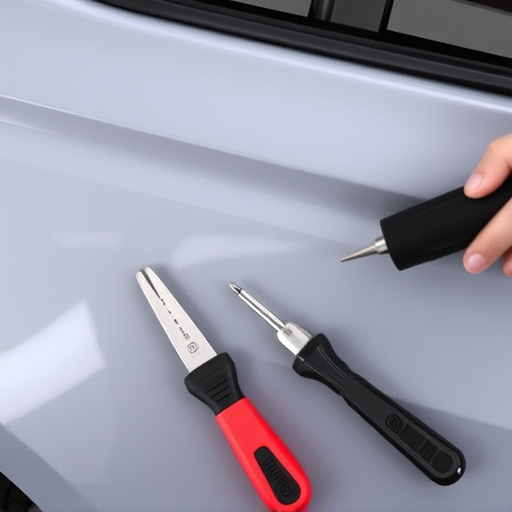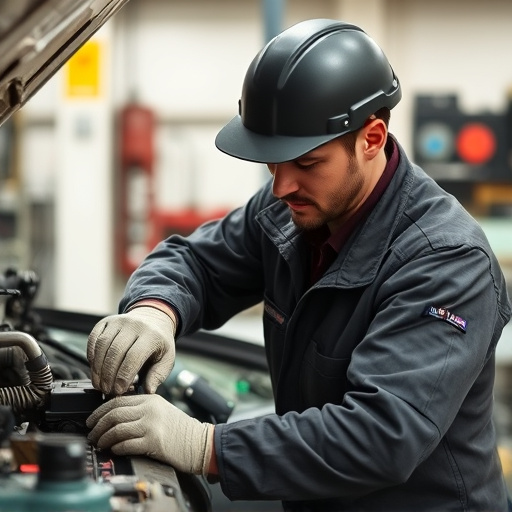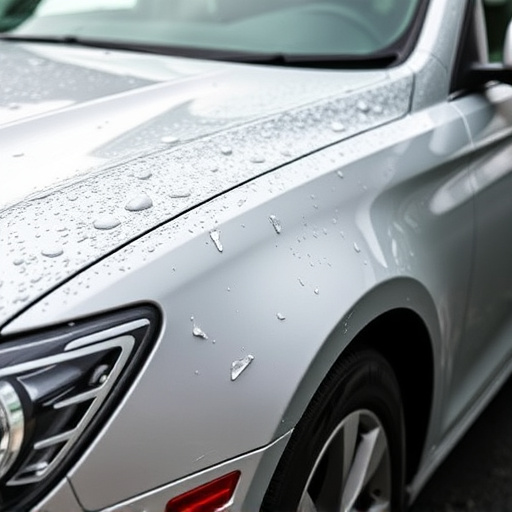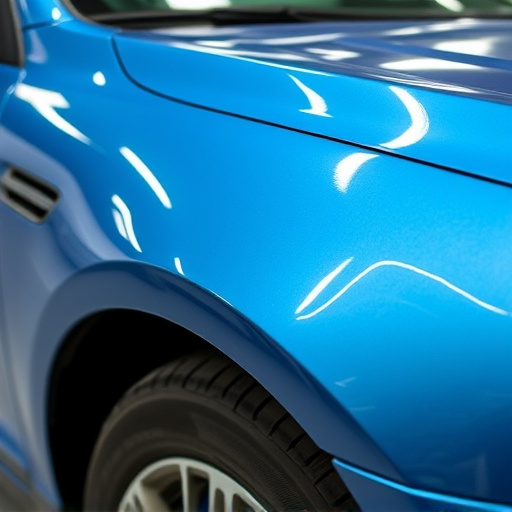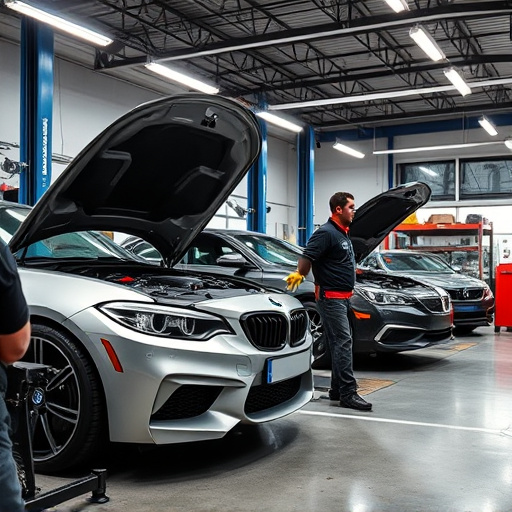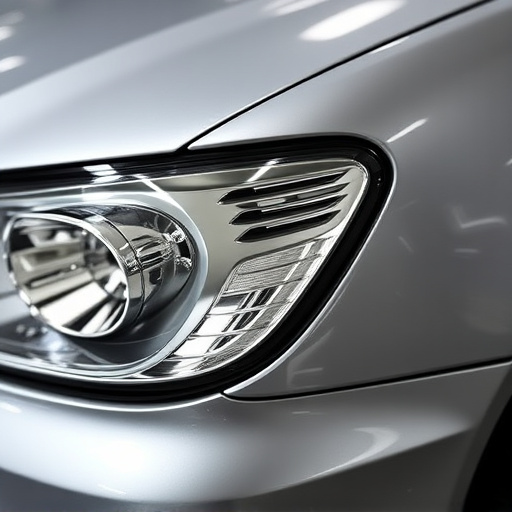Tesla's Aluminum Welding Certification sets global standards for car repair shops, ensuring all welds on Tesla vehicles meet specific durability and structural integrity criteria. This rigorous process involves extensive training and testing, addressing concerns related to body repair or modification, enhancing overall quality control in the automotive industry, particularly for electric vehicle (EV) manufacturers like Tesla. The certification extends beyond new car production to routine body shop maintenance, promoting peace of mind for owners and ensuring EV reliability and longevity.
Tesla’s commitment to innovation extends to its aluminum welding techniques, as evidenced by their recent certification program. This focus on quality ensures long-term vehicle safety, a critical aspect of electric mobility. The article delves into Tesla’s stringent aluminum welding standards and the significance of certification in maintaining structural integrity. We explore how this advancement translates into enhanced longevity and performance for EV owners, setting a new benchmark in the industry.
- Understanding Tesla's Aluminum Welding Standards
- The Role of Certification in Ensuring Safety
- Longevity and Performance: Benefits for Electric Vehicles
Understanding Tesla's Aluminum Welding Standards

Tesla’s commitment to innovation extends beyond electric motors and advanced software; it also encompasses its manufacturing processes. At the heart of this is the brand’s adherence to rigorous aluminum welding standards, ensuring not only structural integrity but also long-term vehicle safety. The Tesla Aluminum Welding Certification is a testament to this dedication, setting benchmarks for car repair shops and bodyworkers worldwide.
This certification process involves extensive training and testing, covering various aspects of car bodywork and restoration techniques. It ensures that every weld on Tesla vehicles meets specific criteria, guaranteeing a durable and seamless connection between components. This meticulous approach not only enhances the overall quality control but also plays a pivotal role in maintaining the vehicle’s structural integrity over its lifespan, addressing any potential concerns related to car body repair or modification.
The Role of Certification in Ensuring Safety

In the automotive industry, especially with electric vehicle (EV) manufacturers like Tesla, ensuring long-term safety and structural integrity is paramount. This is where the Tesla aluminum welding certification plays a pivotal role. It’s not just about meeting specifications; it guarantees that every weld is precise and consistent, using approved techniques and materials. This rigorous process ensures that vehicles, from new models to classic car restoration projects, maintain their structural stability over time.
The certification doesn’t merely apply to new car production; it also influences bumper repair and routine car body shop maintenance. By adhering to certified standards, shops can effectively carry out repairs without compromising the vehicle’s safety. This is crucial for EV owners who rely on their vehicles not just as a means of transportation but as an investment, whether it’s a brand-new Tesla or a vintage model undergoing meticulous bumper repair and restoration.
Longevity and Performance: Benefits for Electric Vehicles
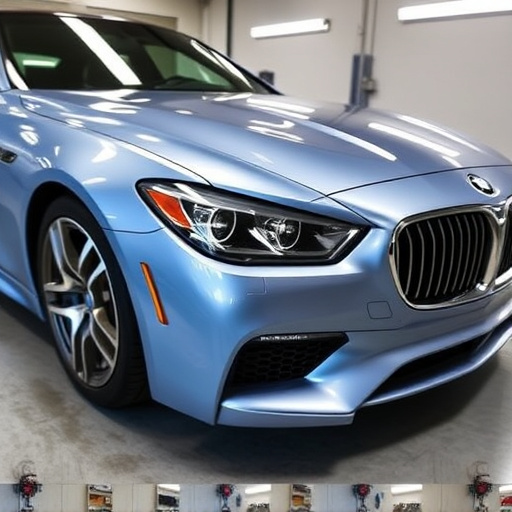
Tesla aluminum welding certification is a significant step forward in ensuring the longevity and performance of electric vehicles (EVs). Aluminum, known for its lightweight properties, plays a pivotal role in modern automotive design, especially in EV structures. By implementing advanced welding techniques, Tesla ensures that these components not only maintain structural integrity but also withstand the rigorous demands of daily use and extreme weather conditions.
This certification underscores the brand’s commitment to top-tier automotive repair and paintless dent repair standards, contributing to the overall reliability of its vehicles. As EVs continue to gain popularity, the importance of such certifications cannot be overstated. They not only promise enhanced performance but also offer peace of mind for owners, knowing their vehicles are built to last with minimal environmental impact.
Tesla’s commitment to aluminum welding certification is a significant step towards enhancing vehicle safety and performance. By adhering to rigorous standards, Tesla ensures that their electric vehicles are built to last, providing drivers with peace of mind. This certification process plays a pivotal role in navigating the complex landscape of automotive manufacturing, ultimately contributing to a safer and more sustainable future for electric mobility.
